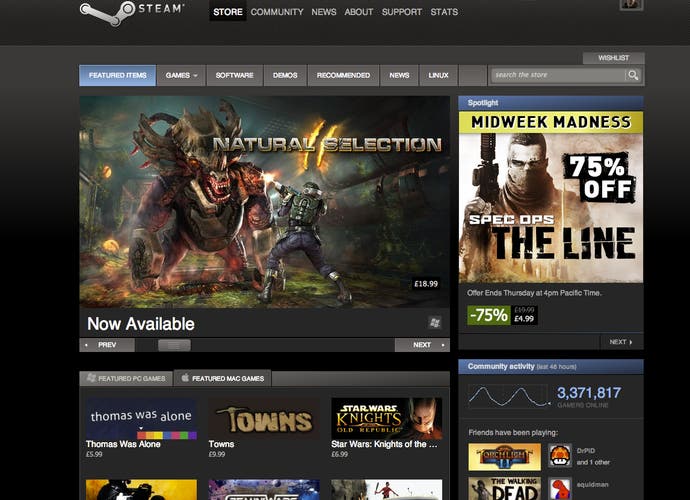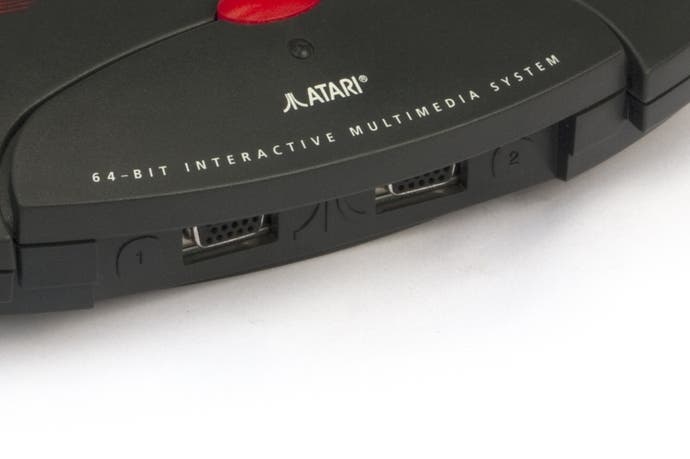Trends of 2013: The last console generation
The old model doesn't seem to work any more. Time for a change.
What a wacky few years we've had in the games industry! Economic uncertainty and decrepit console hardware have led to widespread stagnation and weakening sales in core games, leaving upstarts in new categories like free-to-play and mobile to steal all the headlines. What a jolly good thing it is, then, that the next-generation consoles will soon be here to save the day! PlayStation 4 and Xbox 720 are mere months away, and when they show up we can hit the reset switch and do away with all this scary change. The good old days are just around the corner!
Just kidding. All that stuff is well and truly dead and buried. Just look at the PlayStation 2, which ceased production in December. The 150-million PS2 empire was built on a cheap DVD player and exclusive games at the peak of their power, but neither of those scenarios is replicable in the modern day. There is no revolutionary new technology to ride like a Trojan Horse into people's living rooms, and buying up all the best third-party games would be prohibitively expensive, even for a company with a market cap like Microsoft's.
Even if it was possible to recreate the conditions the PS2 faced, the competition now is stronger than ever - particularly because it is a different kind of competition. Smartphones and tablets are building competitive game stores and becoming more powerful and more connected as well - not just to the internet, but to other devices, potentially including your TV. If your phone was powerful enough to run Call of Duty and talk to your TV, why would you need a console?

PCs are more viable as entertainment boxes and bridges to the television, too. Steam has brought the iTunes effect to a sector of gaming previously ruined by piracy, giving consumers an experience they like enough to spend lots of money on, and cheap PCs with standard specs that sit next to your TV aren't far behind. Indeed, of the next-generation gaming devices on the horizon, Valve's Steam Box is the one that sounds most interesting to me (screw motion control, give me biometrics!), not to mention viable, because it doesn't need to sell 50 or 100 million units to justify its existence.
Valve's attitude that anyone can partner with it to make a Steam Box isn't just one of its cute little Valve quirks, either - the fact that the Steam Box is just a way into the content, which anyone can offer, is a crucial signpost on the changing landscape of home entertainment. In a world where pretty much every box or device can do pretty much everything you care about, your hardware choice becomes much less important than your choice of login. If you run your digital life through a Microsoft Passport or an Apple ID, then you're much more likely to stay within that ecosystem. Ditto Steam.
That's a big challenge for Sony and Microsoft's new consoles. Over the long term, perhaps it will be better if the PlayStation Network and Xbox Live services simply become the PlayStation and Xbox services, with the hardware becoming more iterative and less symbolic, offering a way into those environments but not the only way. We're already seeing evidence of this with Microsoft's cross-platform games like Wordament, its Surface tablet push and the rumoured Kinect standalone console, while Sony's investment in Gaikai, Vita and the PlayStation Mobile system speak to a broader vision here too.
All of which makes the platform makers' current attitudes to console hardware look increasingly backward. Making a new console every six, eight or 10 years when rivals in related sectors are pumping out new phones, tablets and other boxes every six, eight or 10 months is leaving them lagging behind. Sure, that kind of product refreshment means splintered installed bases, but that's less important than it used to be. Games developed to thrive on iPad 2 specs are still just as much fun on an iPad 4, and consumers are showing they're happy with that. Meanwhile, the addressable minority of people who do own the fastest hardware get sumptuous niche products like Infinity Blade.

Maybe Sony and Microsoft should jump on that bandwagon and go further than regular form factor changes in future, updating the actual power of the PS4 or Xbox 720 annually rather than just the exterior appearance, the margin on the cost of the screws inside and the HDD capacity. It might help. We may harrumpf and start petitions and turn the Twittersphere purple in response, but if our collective history of complaining about things and then buying them in monstrous numbers anyway is anything to go by, then Kaz Hirai and Steve Ballmer can still sleep easy.
There is still a third way, of course, which is the possibility that Sony and Microsoft can differentiate their new platforms in dramatic and exciting ways that are unavailable through any other device. Everything else I've said assumes that they recognise the increased commoditisation of what they do and the need to revise their businesses to accept that they are no longer unique and special snowflakes, but if they can summon a silver bullet the same way that Nintendo managed to conjure up Brain Training or Wii Sports during its purple patch in the mid-2000s, then that would be a game-changer. The signs aren't good though. Judging by the PS Vita and Wii U, even the best minds are drawing blanks here.
So I wouldn't be surprised if this is the last console generation that fits the concept as we've come to know it these past 30 years - a single box with proprietary software that lives for a few years and is then replaced - and something new emerges to take over. Maybe the ramifications of that will seem scary on the surface - change often does - but the good news is that in over a decade reporting on games I've never known so many talented, creative and inspirational people to be making them at once, and as long as they keep doing that then we can only benefit, whatever means by which we have to access their work in future.

